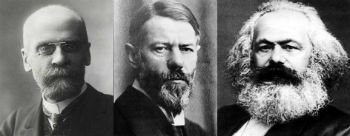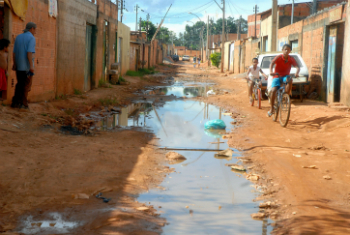Even with the advent of the Republic in 1889, the expectations that some intellectuals could have regarding political emancipation and the creation of a critical sense and population – not only rural, but also urban –, with the structuring of a party system and an apparent political modernization were frustrated. Adding to the group of "isms" that marked the beginnings of the formation of Brazilian society, (patriarchalism, coronelismo, bossiness, clientelism, among others) there is populism and paternalism. A little more "recent", and linked to the republican history of the country, populism had the same alienating role as the other "isms", since, by the exaltation and popular promotion of some figures like Getúlio Vargas, as well as through paternalistic policies, also promoted the exclusion of the majority from the political system.
In Brazil, at the beginning of the last century, the oligarchies that until then dominated the State fell into decay; and a bourgeois and already urban elite yearned to reorder national political life. With the participation of the middle class and even the military, in 1930 the revolution that would start the Vargas era took place. Until then, popular pressure was not felt, given the huge electoral exclusion of society, a picture that would change after the revolution. The Brazil of the first half of the 20th century would undergo changes in its political arena and popular pressures would take shape, as shown by Francisco Welffort in his work
Populism in Brazilian politics (1978):“If popular pressure on state structures can only be felt by the dominant minorities in the pre-1930 stage; in the later stage it will quickly become one of the central elements of the political process, at least in the sense that the forms of acquisition or preservation of power will be increasingly impregnated with the presence popularair” (WEFFORT, 1978, p. 67).
Henceforth, public policies would need to meet this demand, as the pressure began to exist. Although it was beginning to emerge, it is necessary to make the reservation that the effective participation of the popular mass was still negligible and it took place through the intermediation of political parties that claimed to represent their needs, but which, in fact, also represented groups dominant.
“...it should be noted that if in the oligarchic period the masses are far from any possibility of real participation, in the later period - either during the Vargas dictatorship, or during the democratic stage (1945-1964) – his participation will always occur under the tutelage of representatives of some among the dominant groups [...] it would be difficult to say that the popular masses, or any of their sectors, have managed to participate in the political process with a minimum of autonomy” (WEFFORT, 1978, p. 67).
Do not stop now... There's more after the advertising ;)
The conditions were created for the development of patronage and paternalistic policies, which did not actually aim to create improvements “real” and substantial to the population, but rather a set of policies to some extent beneficial, but which was no more than a mechanism for certain elites remained in power, since the elaboration of instruments for popular participation in politics was not even considered. promoted. In the words of Nicola Matteucci, in a Dictionary of Politics (2004) that he helped to organize, about paternalism it can be said that it is an authoritarian and benevolent policy, an assistance activity in favor of the people, carried out from above, with merely administrative methods, which on the other hand will only serve to calm the tempers of a pressure popular. Nevertheless, this author continues to state that opposition to this type of policy is only made through the defense of political freedom, which leads to the valorization of pluralism political and social, as well as through the repudiation of the solution of individual and social problems with administrative and bureaucratic methods, which alienate the individual from the system political. Populism was, without a doubt, built on this trend that tries to calm the pressures, building in parallel a very personal figure, of a representative who, through his populist discourse, in “the name of the people”, and a populist ideology, seeks popular support (as was the case of the labor reforms undertaken by Vargas due to the pressures of the working class), but which actually aims at its maintenance in the power. It is possible to state that, in this way, populism would have a double character, in other words, it would be given by a paradox, since the dominant sectors promote the participation of the dominated and the masses, so that they support a regime in which they would continue to be dominated.
Paulo Silvino Ribeiro
Brazil School Collaborator
Bachelor in Social Sciences from UNICAMP - State University of Campinas
Master in Sociology from UNESP - São Paulo State University "Júlio de Mesquita Filho"
Doctoral Student in Sociology at UNICAMP - State University of Campinas


